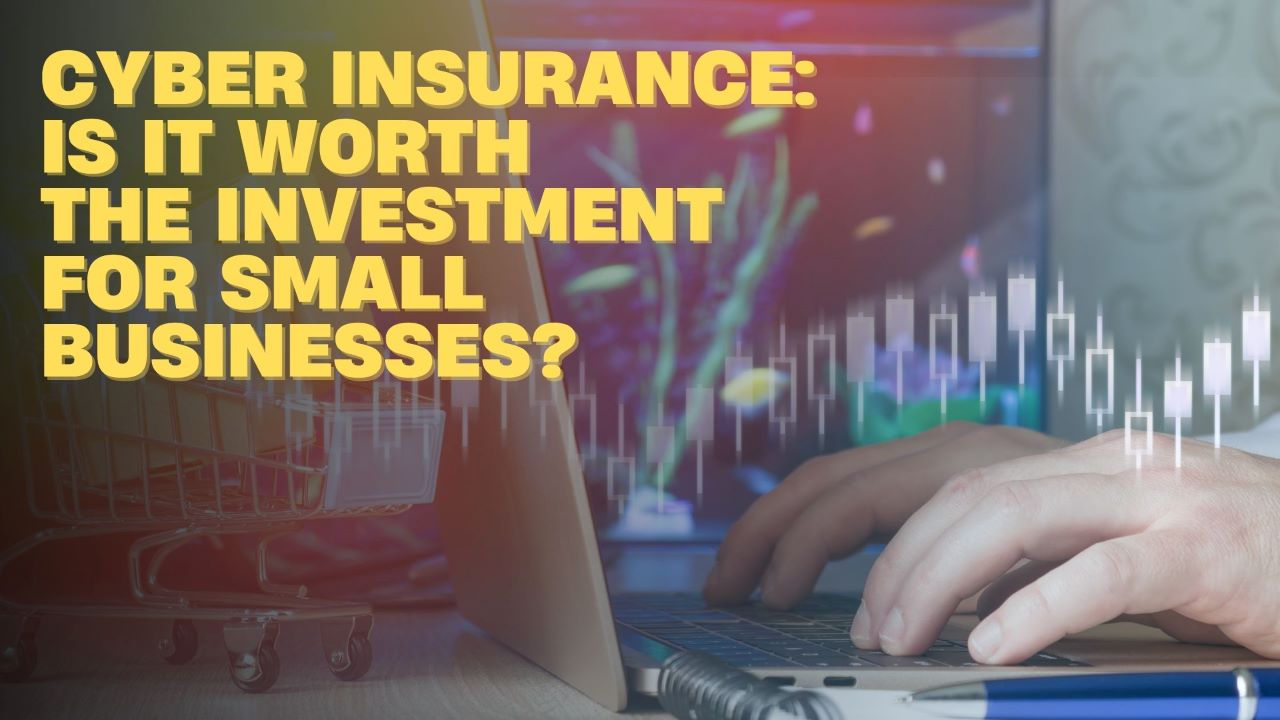In the field of cybersecurity, the main goal is no longer just protection; it’s also about being ready and resilient. Cyber risks are constantly evolving, so even the best-protected companies can be attacked.
A cyber catastrophe, such as a data breach or ransomware attack, may have severe effects on both a person’s professional life and financial situation.
Cyber Insurance
For some businesses, the most important question is not if they will have a hacking disaster, but when. This is where cyber insurance comes in handy. In any case, would you still suggest it?
Cyber insurance has emerged as a crucial security measure for modern businesses. Let us examine what cyber insurance is, what it covers, and its benefits, and whether it’s a smart choice for your small business.
Understanding Cyber Insurance
Cyber insurance is a form of insurance that offers full protection for businesses against cyber hazards. Insurance is classified into two types: first-party coverage (for the company or business) and third-party coverage (for customers and others concerned).
It often includes protection against data breaches, extortion payments, cyber fraud and cyber terrorism, and other malicious acts.
Furthermore, cyber insurance provides access to services such as legal counsel, public relations support, credit monitoring for impacted parties, and crisis management. Depending on your insurance, it may also cover reputational harm caused by a data breach or other cybersecurity issue.
Is Cyber Insurance Worth It?
When it comes to cyber insurance, the answer for small businesses is a yes! The possible financial ruin caused by a major cybersecurity attack significantly surpasses the costs of coverage, even if some may see it as an extra expenditure
Cyberattacks may still affect small businesses, and in fact, they are often targeted because of their comparatively weak cybersecurity defenses.
Significant monetary damages, damage to reputation, missed revenue, and even legal ramifications may result from only one major hacking incident. Knowing that your company has cybersecurity insurance can save a lot of stress.
Why Small Businesses Need Cyber Insurance
Businesses are being targeted by cybercriminals
Cybercriminals are increasingly focusing their attention on businesses as their target. The number of cybercrimes that are directed at small and medium-sized businesses has increased.
Yet few small businesses actually acknowledge carrying cyber insurance.
The majority of small and medium-sized businesses believe that cyber threats primarily affect larger companies, leading them to feel immune to such concerns. Cyberattacks can occur to any business, despite common misconceptions. However, tends to target small businesses because they are less likely to have the proper security measures in place.
Therefore, cyber insurance should be your top investment priority when considering cybersecurity services.
Inadequate security for businesses
Smaller firms lack the resources and advanced cybersecurity capabilities that larger corporations possess. The number of cybercrimes committed against small companies has increased over the last several years.
Also, most businesses have kept up the practice of working from home since the pandemic, which makes them fall victim quickly.
Even if threat actors come up with new methods to target small businesses, they will probably use the same methods. Therefore, companies may get cyber insurance coverage to protect themselves and lower the risks.
Underestimating the risks
Most small and medium-sized businesses require a thorough understanding of the importance of effective protection. Aside from that, they should know how hacking can impact their business profits. Losses like this can happen because of things like social engineering, cyber blackmail, meddling with companies, and worries about responsibility.
One way to mitigate the financial impact of cybercrime is to get cyber insurance. But recommended to contact an expert service provider who can evaluate your cybersecurity risks and provide an insurance policy that fits your business needs.
How to Choose the Right Policy
Choosing a suitable plan might be difficult. How can you select the best solution for your requirements from all the available options? The following advice will help you:
Evaluate your risk profile
Individuals exhibit varying degrees of vulnerability to potential cybersecurity risks. For example, an individual managing a home-based business that keeps confidential records might need more extensive coverage than someone who does not handle such records at all.
Evaluate your digital footprint, the categories, the data you manage, and the cybersecurity measures you have implemented to determine your particular vulnerabilities.
Check coverage exclusions
Cyber insurance policies vary significantly. Therefore, a comprehensive understanding of your policy’s coverage is essential. Certain policies may exclude specific categories of cyber incidents or implement a sublimit on particular coverages.
For instance, an insurance might provide coverage for expenses incurred from a data breach but exclude the payment of ransom demands. Examine the policy’s requirements and seek guidance from an insurance professional to ensure its coverage.
Set strong cybersecurity protocols
The likelihood of encountering cybersecurity risks varies from person to person. For instance, compared to someone who doesn’t keep medical data secret, a small or home-based company owner who does would need more comprehensive insurance.
Think about the data you deal with, your digital footprint, and the cybersecurity measures you already have to determine where you are most vulnerable.
Conduct Risk Assessment
In order to do a complete risk assessment, it is very important to find the most dangerous threats online and the possible outcomes that could come from them.
The result of these evaluations may be used by your insurance provider in determining the amount of coverage and in tailoring the policy to match your specific needs.
Identify policy requirements.
Using the information that you have gained from the risk assessment, you should look for cybersecurity insurance coverage that is customized to the unique requirements of your firm.
Determine, based on the risks that have been identified, the fundamentals that you will need in a policy at the very least. Afterwards, think of other items that would be wonderful to have in addition to the things that are required.
Maintain coverage
After choosing a policy, the procedure continues. Remember that cyber threats develop over time. Checking and updating your computer insurance coverage is an excellent idea.
A technical professional can help with your application and coverage. Assess what network and IT security changes are needed to be made to maintain the insurance.
Conclusion
Cybersecurity threats and business risks are an inevitable part of doing business in today’s globally connected world, particularly for smaller businesses. It would be risky to disregard these threats and pretend they won’t affect you.
Due to the unpredictability of cyber incidents and assaults, insurance serves as a protective barrier. It’s an investment in your company’s long-term success and development, providing you with the confidence needed to navigate the digital landscape with resilience and certainty. (JEN)








Leave a Comment